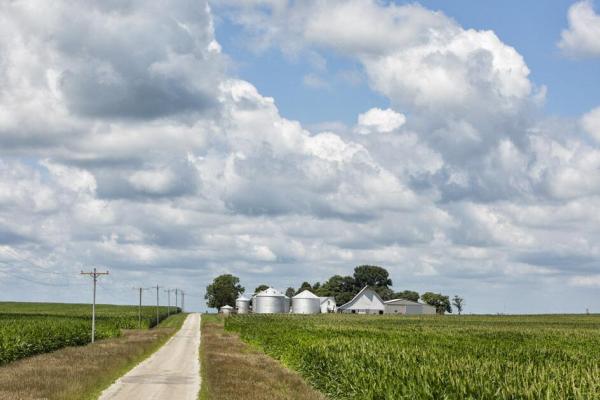Sorensen Leads Effort to Invest in Rural Schools

Two Dozen Members of Congress Join Sorensen’s Call for Investing in Rural Schools in Spending Bills
WASHINGTON, DC – Congressman Eric Sorensen (IL-17) led a bipartisan group of 24 of his colleagues in calling for funding the Rural Education Achievement Program (REAP), which invests in rural schools. Sorensen’s advocacy is in direct response to outreach from rural school districts in Central and Northwestern Illinois on this issue.
“We urge the Committee to adopt robust funding for the Rural Education Achievement Program (REAP) of the Elementary and Secondary Education Act (ESEA),” Sorensen and the members wrote in the letter. “REAP is the only federal education program with the sole focus of directing funding to students who attend rural school districts.”
Rural school districts receive less funding due to their smaller population size and face unique challenges that make applying for federal grants difficult. REAP was created to address these many issues and support rural students, families, and communities.
Read the full letter here and below:
Dear Chairman Aderholt and Ranking Member DeLauro:
As you develop the Labor, Health and Human Services, Education, and Related Agencies appropriations bill for Fiscal Year (FY) 2025, we urge the Committee to adopt robust funding for the Rural Education Achievement Program (REAP) of the Elementary and Secondary Education Act (ESEA). REAP is the only federal education program with the sole focus of directing funding to students who attend rural school districts. According to the National Center for Education Statistics, rural schools represent 28% of all schools in the country and serve more than 9 million students. Rural school districts receive smaller federal formula allocations given their smaller populations and face unique hurdles that make applying for and managing federal competitive grants challenging. REAP was created in recognition of these unique circumstances and remains a well-regarded federal program that supports rural students, families, and communities.
The ESEA authorizes two distinct programs to specifically assist rural Local Education Agencies (LEAs) as a part of the REAP grant program: the Small Rural School Achievement (SRSA) program and the Rural and Low-Income School (RLIS) program. SRSA provides funding to rural LEAs that serve small numbers of students, while RLIS provides funding to rural LEAs that have larger populations of low-income students.
Since its inception in 2001, rural school systems across the country have relied on REAP funding to ensure their students have access to a high-quality education. The program provides vital resources and flexibility that allow district administrators to target funding to address the specific needs of their students.
According to the Department of Education, REAP funds are most commonly used by LEAs for investing in updated technology and providing additional compensation for staff. As we see the field of education struggle with staffing across the country, nowhere is more impacted by the shortage than our rural communities and students. Additionally, investment in technology is crucial to making sure rural communities are not left behind in the digital age and students are prepared for a future-driven workforce.
REAP is a critical program for rural schools in every state across the country. In 2023, 6,217 rural school districts benefitted from the bipartisan investment made in the program. As you consider funding requests for the final Labor, Health and Human Services, Education, and Related Agencies appropriation bill for Fiscal Year 2025, we appreciate your consideration of this request and urge you to continue support for rural students, schools, and communities by providing robust funding to the REAP grant program. Thank you for your consideration.
Congressman Eric Sorensen serves on the House Committee on Agriculture and the House Committee on Science, Space, and Technology. Prior to serving in Congress, Sorensen was a local meteorologist in Rockford and the Quad Cities for nearly 20 years. His district includes Illinois’ Quad Cities, Rockford, Peoria, and Bloomington-Normal.
###
